
For our 2024 rankings, the research team at Nursing Schools Almanac collected data on nearly 3,000 nursing schools and campuses throughout the United States. We evaluated each school on three dimensions:
- The institution’s academic prestige and perceived value
- The breadth and depth of nursing programs offered
- Student success, particularly on the NCLEX licensure examination
We then combined these assessments into an overall score and ranked the schools accordingly. For a detailed description of our assessment methodology and dimension weights, please see here.
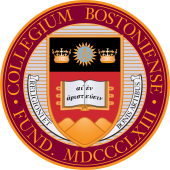
#1: Boston College
The William F. Connell School of Nursing is geared towards global diversity and social justice. The college’s nursing students enjoy a liberal arts education and receive a range of cultural healthcare perspectives, with access to six international locations. Approximately 100 BSN and 40 MSN students graduate from the school’s prelicensure programs each year. BSN students have maintained a strong 94% NCLEX pass rate over the past decade, while direct entry MSN students scored a perfect 100% pass rate in seven of the past ten years. The school offers a wide range of graduate programs, including certified registered nurse anesthetist (CRNA) and pediatric or psychiatric nurse practitioner (NP) options.
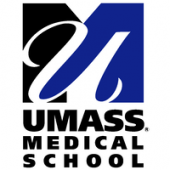
#2: University of Massachusetts Medical School
UMass Medical School is consistently ranked by U.S. News & World Report as one of the leading medical schools in the nation for primary care education. UMMS’s graduate school of nursing, accredited by the Commission on Collegiate Nursing Education, offers master’s degrees, post-master’s certificates, and doctoral degrees. It stands out as the only publicly funded nursing school in the commonwealth with a sole focus on graduate education. It is no surprise, then, that their direct entry MSN program has boasted an exceptional NCLEX pass rate of 94% over the past decade.

#3: Northeastern University
Northeastern’s School of Nursing, part of the Bouvé College of Health Sciences, provides students broad interaction across Bouvé’s entire faculty. The school maintains a strong focus on research and an interdisciplinary approach to healthcare. Indeed, Northeastern was designated an NLN Center of Excellence in 2013 for enhancing student learning and professional development. Prelicensure students perform very well on the NCLEX exam. The school’s BSN program posted a 91% pass rate over the past decade, while its direct entry MSN program scored a phenomenal 96% pass rate over that time period. Northeastern also offers an online RN-to-BSN program, an MSN curriculum with six nurse practitioner specialties, two doctoral nursing degrees (PhD and DNP), and a nurse anesthesia program.
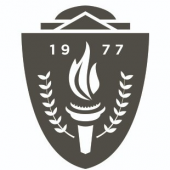
#4: MGH Institute of Health Professions
The MGH Institute of Health Professions is always innovating. In 2007, its School of Nursing was one of the first four institutions in the country to create an accredited DNP program. The school introduced a holistic Mind Body Spirit program in 2011 and a Global Health Nursing certification program in 2013. More than 80% of the school’s faculty members possess a doctoral degree. MGH Institute students perform very well on licensure and certification exams. Prelicensure BSN students have achieved an 87% first-time NCLEX pass rate over the past decade, while their counterparts in the direct entry MSN program scored a 91% first-time pass rate over that time period. Advanced practice students perform similarly well on their APRN certification exams.
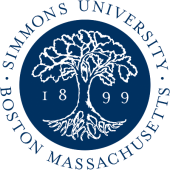
#5: Simmons University
Simmons’s low student-to-faculty ratio allows it to concentrate on strong, clinically based baccalaureate, master’s, post-master’s, and doctoral programs in nursing. Simmons students can also take advantage of Boston’s Longwood Medical Area, which features 21 renowned medical and academic institutions in their immediate backyard. The school graduates approximately 200 students annually from its prelicensure BSN program, with a strong 93% NCLEX pass rate over the past decade. Simmons’s direct entry MSN program graduates an additional 30-50 students annually. It has boasted a phenomenal 98% NCLEX pass rate over the past decade, with six out of ten cohorts scoring a perfect 100% pass rate.
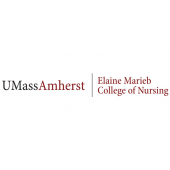
#6: University of Massachusetts Amherst
The Elaine Marieb College of Nursing at UMass Amherst was the first in the state to offer a DNP program and among the first to offer a publicly supported PhD program. The online MSN program is also consistently ranked among the top dozen in the nation by U.S. News & World Report. UMass Amherst offers a breadth of graduate options including three MSN tracks (clinical nurse leader, nursing education, nursing studies), three DNP nurse practitioner specialties (adult-gerontology primary care, family, psychiatric-mental health), and two other DNP programs (public health nurse leader, post-master’s completion). At the undergraduate level, the College of Nursing offers a traditional baccalaureate program, an accelerated BSN for non-nursing degree-holders, and an online RN-to-BSN pathway. Over the past decade, prelicensure students have passed the NCLEX exam at an 89% rate on their first attempt, including a 93% pass rate in 2020. UMass Amherst’s recently renovated facilities include a nursing simulation lab with five state-of-the-art rooms, a 16-hospital-bed area, and two clinical exam rooms.
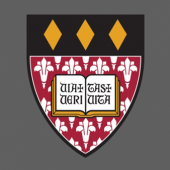
#7: Regis College
The Richard and Sheila Young School of Nursing at Regis College has received three consecutive NLN Center of Excellence designations since 2008. With small class sizes and four high-tech simulation labs, the school provides its students experience-oriented nursing education. Enrollees in the direct entry MSN program have passed the NCLEX licensure exam at a stellar 96% rate over the past decade. The school also offers a traditional four-year BSN, an RN-to-BSN program with two pathways (non-nursing bachelor’s, no bachelor’s), a postlicensure MSN program with ten specialty tracks (five in leadership, five for nurse practitioners), and a DNP program that is delivered both on campus and online.
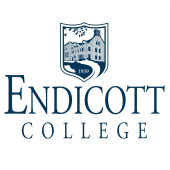
#8: Endicott College
Fully equipped laboratories, intensive clinical experiences, and small class sizes are several of the benefits that Endicott nursing students enjoy. A typical nursing class has between 10 and 36 students, and clinical groups average seven students per instructor. The BSN curriculum includes a minimum of 920 clinical practice hours, for which the school has an affiliation with 60 local healthcare facilities. In the final semester, an experienced preceptor mentors each student during a 144-hour internship. This hands-on instruction has helped Endicott’s BSN graduates pass the NCLEX exam at an 87% rate over the past decade. Graduate nursing students can choose from Endicott’s four MSN specializations, three post-master’s certificates, and a nursing PhD program.
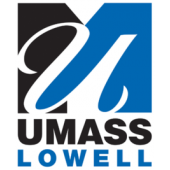
#9: University of Massachusetts Lowell
UMass Lowell’s graduate nursing program is consistently ranked among the best in the nation by U.S. News & World Report. The school boasts 100+ healthcare partners, 200+ students at clinical sites, and 100+ faculty publications. Graduates of the prelicensure BSN program have averaged an 87% first-time NCLEX pass rate over the past decade. Recently recognized by the National Hartford Center of Gerontological Nursing Excellence, UMass Lowell also offers fast-track BSN-to-MSN and MSN-to-DNP programs, as well as a master’s certification in adult-gerontology nursing.
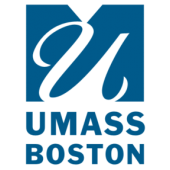
#10: University of Massachusetts Boston
UMass Boston is the ninth-largest nursing school in the country and proudly offers the only publicly supported nursing program in the greater Boston area. The school graduates a significant number of racially and ethnically diverse baccalaureate, master’s, and doctoral students. UMass Boston is known for its abundant nursing resources, including affiliations with 200+ healthcare organizations and an on-campus Center for Clinical Education and Research. The school graduates approximately 200 BSN students annually. It also provides MSN tracks for aspiring family nurse practitioners, adult-gerontology nurse practitioners, and adult-gerontology acute care clinical nurse specialists.
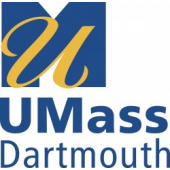
#11: University of Massachusetts Dartmouth
UMass Dartmouth educates more than 650 students across its undergraduate and graduate nursing programs. Its College of Nursing is the only one to offer MSN, DNP, and nursing PhD programs in Southeastern Massachusetts. At the undergraduate level, UMass Dartmouth has approximately 100 students in each prelicensure BSN class. These students passed the NCLEX exam at an 89% rate over the past decade, including a 98% rate in 2018. In addition to a traditional four-year curriculum, the school offers an accelerated second-degree BSN and an online RN-to-BSN program. Alongside faculty mentors, UMass Dartmouth students can delve into a broad range of research topics including cardiac illness, spinal cord injury, and global community health.
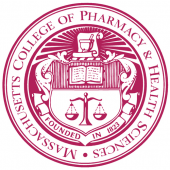
#12: Massachusetts College of Pharmacy and Health Sciences
Graduates from Massachusetts College of Pharmacy and Health Sciences are the #1 salary earners in New England, according to the U.S. Department of Education. Spread across three campus locations – Boston, Worcester, and Manchester – MCPHS is one of the few private universities in the country specializing solely in the education of healthcare professionals. Nursing students receive a broad-based education that prepares them well for licensure exams and future practice. For example, BSN students at the school’s Worcester and Manchester campuses have both averaged a 92% NCLEX pass rate over the past decade. Graduate nursing students can choose from two MSN nurse practitioner tracks and a DNP program, all offered 100% online.
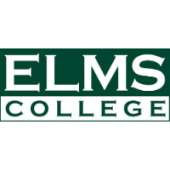
#13: College of Our Lady of the Elms
Elms College’s Department of Nursing graduated its first class in 1982. In 2013, it was reorganized into the School of Nursing and became the first school at Elms College. The School of Nursing provides entry-level, degree completion, and advanced preparation nursing programs. Specific degree pathways include traditional and accelerated BSN programs, an MSN in nursing education or management, a dual-degree MSN/MBA track, and several degree completion options for registered nurses. In 2014, Elms College introduced a DNP program with specializations as a family nurse practitioner or an adult-gerontology acute care nurse practitioner.
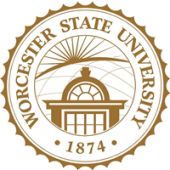
#14: Worcester State University
The Dr. Lillian R. Goodman Nursing Department at Worcester State University has educated nurses for forty years. The department provides three undergraduate nursing tracks: traditional BSN, RN-to-BSN, and LPN-to-BSN. Prelicensure BSN students have passed the NCLEX exam at a phenomenal 96% rate over the past decade, including a perfect 100% pass rate in three of the past five years. Worcester State’s MSN program is offered in two fields: community / public health nursing and nursing education. Designed for flexible scheduling, it offers blended learning between face-to-face classes and online study. The school also provides a post-master’s certificate program in nursing education.

#15: Fitchburg State University
As the first public university in Massachusetts to offer a nursing program, FSU has a long and distinguished history in nursing education. The school’s facilities include a well-equipped health assessment lab, a state-of the-art clinical simulation lab, and a home care lab. Over the past decade, an astonishing 95% of FSU’s prelicensure BSN students have passed the NCLEX exam on their first try. The university offers three BSN pathways: traditional, LPN-to-BSN, and RN-to-BSN. They also conduct an online MSN with a focus on forensic nursing, designed for RNs who wish to pursue advanced leadership positions in the healthcare system.
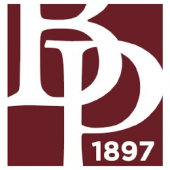
#16: Bay Path University
Bay Path University is an independent nonprofit institution that has educated students since 1897. The school serves more than 3,000 individuals today, including hundreds enrolled in the nursing programs. The American Women’s College of Bay Path University conducts an RN-to-BSN degree completion program with coursework that can be completed entirely online. Applicants must hold an active license and be in good standing as a registered nurse. If so, a minimum of 30 transfer credits and possibly up to 84 transfer credits may be applied towards the BSN degree. Depending on the number of transferrable credits, students can expect to complete the degree in 18-24 months. Bay Path University also offers an online DNP program through its graduate division. The DNP curriculum offers both BSN and MSN entry points, and it prepares graduates to serve as family nurse practitioners. Both the RN-to-BSN and DNP programs are accredited by the Commission on Collegiate Nursing Education.
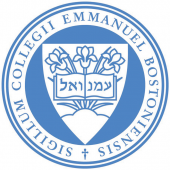
#17: Emmanuel College
Located in the heart of the Longwood Medical Area, Emmanuel College has a niche focus on educating registered nurses. Emmanuel’s degree completion program combines core baccalaureate courses in English, social science, history, and religion with an advanced nursing curriculum, culminating in a BSN degree. For graduate students pursing an MSN or post-master’s certificate, the college offers two tracks. Nurse educators can prepare for certification by the NLN, and nurse administrators can prepare for certification by the American Nurses Credentialing Center.
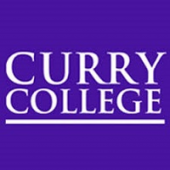
#18: Curry College
Curry College was the first nursing program in the state of Massachusetts to earn accreditation from the Commission on Collegiate Nursing Education. The School of Nursing offers three BSN pathways (traditional, accelerated second degree, RN-to-BSN) and two MSN specializations (nursing administration, nursing education). Curry College’s location in the Boston metropolitan area enables students to experience dynamic, hands-on learning at some of the best medical facilities in the world. Clinical rotations begin during sophomore year at a wide range of urban and suburban institutions, with rotations that include pediatrics, maternity care, and mental health. Curry College graduates approximately 100 prelicensure BSN students each year. These individuals have averaged an 87% NCLEX pass rate over the past decade, including a stellar 97% pass rate in 2018.
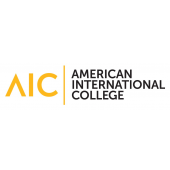
#19: American International College
American International College opened in 1885 as a school for international immigrants. The institution became coed in 1892, making it one of the first colleges in the region to educate women. AIC offers BSN and RN-to-BSN courses for undergraduate students. Graduates of the traditional BSN program have passed the NCLEX exam at an 86% rate over the past decade. The college introduced its MSN program in 2005, which offers a hybrid of classroom and online modules. In fact, two-thirds of the content is available online, providing much-needed flexibility for working nurses.
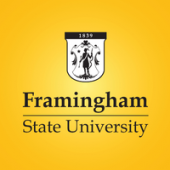
#20: Framingham State University
The Nursing Department at Framingham State offers a single undergraduate program in nursing, which is only available to registered nurses pursuing their BSN completion. At the graduate level, Framingham State has MSN concentrations in nursing education and nursing leadership. MSN-educated nurses can also complete a post-master’s certificate in either area. Graduate students can pursue several specialty certifications at the end of their studies. These include the ANCC’s Nurse Executive certification, a Clinical Nurse Leader certification offered by the Commission of Nurse Certifications, and the NLN’s Certified Nurse Educator certification.
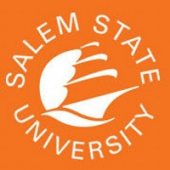
#21: Salem State University
The School of Nursing at Salem State University offers four BSN pathways (traditional, accelerated, LPN entry, RN entry) and a breadth of MSN options. The BSN curriculum blends academic and experiential learning with clinical practicums in adult health, maternal-child health, and community settings. The accelerated BSN is a 15-month pathway for students who hold a baccalaureate degree in a non-nursing field. The LPN-to-BSN program is similarly streamlined, requiring just four semesters and a summer session to complete. Across these prelicensure programs, graduates have achieved an 83% first-time NCLEX pass rate over the past decade. Salem State’s MSN program has three tracks: adult-gerontology primary care nurse practitioner, nursing education, and nursing leadership in health systems. Designed for working professionals, the MSN is delivered in an evening and hybrid format.
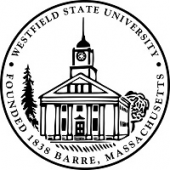
#22: Westfield State University
The BSN program at Westfield State University is part of the Nursing & Allied Health Department. The traditional prelicensure BSN curriculum includes coursework across both the sciences and the liberal arts. Sample courses include Community Health Nursing, Pathophysiology & Pharmacology, and Principles of Sociology. WSU’s program has several distinguishing features including small class sizes, a formal one-year student-to-student mentorship program, a patient simulation laboratory with video and voice recording equipment, and a capstone preceptorship program that allows students to work at healthcare organizations during their last semester under RN supervision. The university also offers a hybrid RN-to-BSN program that allows students to take classes at either Westfield or Springfield Technical Community College.
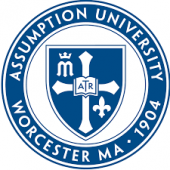
#23: Assumption University
The Froelich School of Nursing at Assumption University offers a direct-admission BSN program that prepares students to provide high-quality, patient-centered healthcare. The school’s direct-admission structure allows applicants to begin the nursing program the same year they are admitted. Students complete rigorous coursework on foundational and nursing topics. They also conduct clinical experiences in acute care and community-based environments. Assumption University is currently constructing a new nursing facility with a state-of-the-art clinical skills and simulation laboratory, intended to augment students’ acute care and community-based experiences. BSN graduates are prepared to sit for the NCLEX licensure examination.
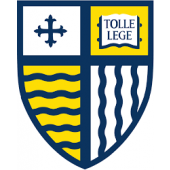
#24: Merrimack College
Merrimack College was founded in March 1947 as the Augustinian College of the Merrimack Valley. Nearly 22,000 students have graduated from Merrimack over its seventy-year history. The School of Health Sciences offers a prelicensure BSN program that combines rigorous coursework with local healthcare partnerships. The curriculum incorporates hands-on learning opportunities so that students become safe, compassionate caregivers as well as leaders in the nursing profession. Graduates are prepared to sit for the NCLEX-RN licensure examination. Upon successful completion, they can pursue careers in a variety of healthcare settings including acute care centers, ambulatory and outpatient clinics, community centers, hospitals, public health services, and skilled nursing facilities.
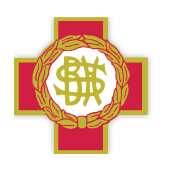
#25: Brockton Hospital School of Nursing
An integral part of Signature Healthcare, Brockton Hospital School of Nursing is the only hospital-based nursing program in the state of Massachusetts. Originally established in 1897, BHSN has graduated over 2,800 nurses throughout its storied history. The school strives for diversity and offers several nursing diploma pathways, including a two-year day program and a four-year part-time program on weekends and evenings. Approximately 88% of BHSN graduates have passed the NCLEX-RN licensure exam on their first try over the past decade. Additionally, the school’s affiliation with Fisher College allows these graduates to transition seamlessly into Fisher’s RN-to-BSN program.
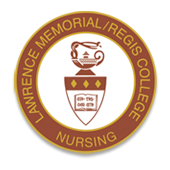
#26: Lawrence Memorial / Regis College
In 1998, Lawrence Memorial Hospital School of Nursing collaborated with Regis College to design and launch a new ADN program. The joint curriculum awards an associate of science degree with a major in nursing. Clinical experiences are offered at major Boston teaching hospitals, suburban hospitals, long-term care facilities, and a variety of community, home care, and social service agencies. The program shares its campus with Lawrence Memorial Hospital and Courtyard Nursing Care Center, both affiliates of Hallmark Health. The Lawrence Memorial / Regis College ADN program produces 100+ newly minted nurses annually, with a strong NCLEX pass rate of 87% over the past decade. Graduates of the ADN program can pursue two different pathways to earn a BSN degree from Regis College.
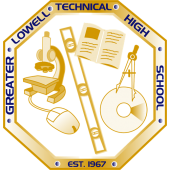
#27: Greater Lowell Technical High School
Greater Lowell Technical High School offers a practical nursing program that is fully approved by the Massachusetts Board of Registration in Nursing and fully accredited by the Council on Occupational Education. The 40-week fulltime program requires 1,097 hours of classroom instruction and 540 hours of clinical experience. The clinical experience allows students to apply classroom theory within various community healthcare facilities. Graduates are eligible to take the NCLEX-PN licensure examination. Greater Lowell Technical High School graduates approximately 70 LPN students annually, and these students have achieved an excellent 93% first-time NCLEX pass rate over the past decade. The graduating class of 2018 also enjoyed a 97% job placement rate.
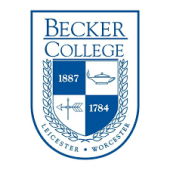
#28: Becker College
Becker College was founded in 1784 as Leicester Academy. It was the first nonsectarian academy in New England to accept female students. Today, Becker College is a private career-focused institution that serves more than 2,000 students across dozens of degree programs. The School of Nursing and Health Sciences offers two pathways to an ADN degree (traditional, LPN advanced placement) and two pathways to a BSN degree (prelicensure, RN-to-BSN). Graduates of the ADN program have consistently performed exceptionally well on the NCLEX-RN licensure exam, earning a 95% first-time pass rate over the past decade. The first five graduating classes of the traditional BSN program have also done well, averaging an 89% NCLEX pass rate.
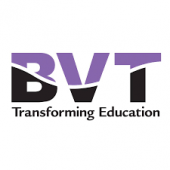
#29: Blackstone Valley Regional Vocational Technical High School
Blackstone Valley Regional Vocational Technical High School is a career-focused high school that prepares graduates for employment in the service, construction, and technology industries. BVT also has a nursing program for adults seeking careers in the healthcare industry. Accredited by the Accreditation Commission for Education in Nursing, the BVT practical nursing program requires 1,090 hours of coursework, laboratory exercises, and clinical experiences. The curriculum covers essential topics like caring for the elderly, community health, and new technologies. Upon completion of the program and passing the NCLEX-PN licensure examination, LPN graduates can pursue employment in acute care settings, long-term care facilities, home healthcare, and clinics. Over the past decade, Blackstone Valley Regional Vocational Technical High School’s LPN students have averaged an outstanding 96% first-time NCLEX pass rate.
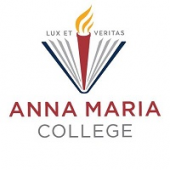
#30: Anna Maria College
The nursing program at Anna Maria College offers a four-year prelicensure BSN for entry-level students and an RN-to-BSN completion program for registered nurses. The prelicensure BSN program is 120 credit hours in length. Graduates have enjoyed an 85% pass rate on the NCLEX-RN licensure exam since the program’s inception. The RN-to-BSN pathway is designed for working nurses who already hold either an ADN or nursing diploma. The program’s flexible online curriculum is built on a foundation of holistic care with a powerful emphasis on multicultural and community nursing.

#31: Diman Regional Vocational Technical High School
Diman Regional Vocational Technical High School hosts a highly regarded School of Practical Nursing. The school harnesses the unique potential of each learner by developing the theoretical and technical skills required for success as an entry-level LPN. Diman Regional’s practical nursing program is accredited by the Council on Occupational Education, and it has full approval from the Massachusetts Board of Registration in Nursing. The program typically graduates between thirty and sixty LPN candidates each year. These students have averaged a 93% first-time pass rate on the NCLEX-PN licensure exam over the past decade. In fact, the last two graduating classes scored a perfect 100% first-time NCLEX pass rate.
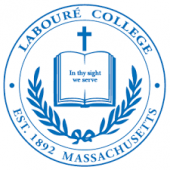
#32: Labouré College
The Labouré College nursing program allows graduates to begin their nursing employment two years earlier than a traditional four-year program. Students first complete an ADN program and pass the NCLEX-RN licensure examination to earn their RN credentials. The college’s ADN graduates have averaged a 74% first-time pass rate on the NCLEX exam over the past decade. Newly licensed RNs can then enroll in Labouré’s RN-to-BSN degree and complete their BSN coursework while they earn valuable work experience. Some students take a break from their studies and work for several years before returning to complete their BSN.
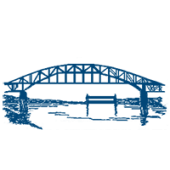
#33: Upper Cape Cod Regional Technical School
Upper Cape Cod Regional Technical School’s Division of Nurse Education offers an LPN program. Two tracks are available: a fulltime 40-week option conducted during the day, and a part-time 80-week option conducted during the late afternoon and evening. At the conclusion of the program, students receive a certificate of completion and sit for the NCLEX-PN licensure exam. The program graduates 40-60 students annually, with a 92% NCLEX pass rate over the past decade. Graduates are prepared to work in a variety of healthcare settings including acute care and community health. They can also matriculate directly into an ADN program, thanks to the school’s transfer agreements with Cape Cod Community College, Bristol Community College, and Quincy College.
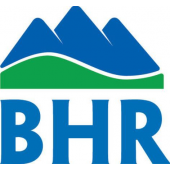
#34: Blue Hills Regional Technical School
Blue Hills Regional Technical School offers vocational programs in the areas of healthcare, science, and technology. The nursing program at Blue Hills offers an LPN pathway for post-secondary adults. This immersive fulltime program provides a rigorous combination of nursing theory and clinical practice in preparation for the NCLEX-PN national licensure examination. Students must attend classes for forty weeks from September to June, Monday through Friday. The program typically graduates 30-40 LPN candidates annually. These students have averaged an exceptional 95% first-time NCLEX pass rate over the past decade.
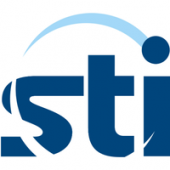
#35: Southeastern Technical Institute
The Southeastern Regional Vocational Technical School District operates a post-secondary technical institute with certified medical assistant and licensed practical nursing programs. These vocational programs combine classroom instruction, laboratory exercises, clinical experiences, and internship opportunities to prepare students for licensure or certification. The medical assistant program takes nine months to complete and boasts a 100% job placement rate. The practical nursing program requires ten months of study and generates equally impressive student outcomes. Approximately 30-50 LPN candidates graduate from the program each year. Over the past decade, these students have averaged a phenomenal 97% first-time pass rate on the NCLEX-PN licensure examination.
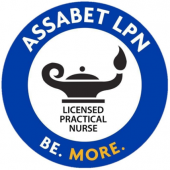
#36: Assabet Valley Regional Technical School
Assabet Valley Regional Technical School offers a ten-month fulltime certificate program in licensed practical nursing. The school accepts a new cohort of approximately forty LPN students annually, with daytime classes conducted five days per week from late August through June. Students are trained to provide direct patient care, including the administration of medications and treatments. They are also prepared to manage and delegate the nursing care provided by unlicensed personnel, particularly in long-term care settings. At the conclusion of their studies, graduates may pursue LPN licensure by sitting for the NCLEX-PN examination. AVRTS students have averaged an impressive 93% first-time NCLEX pass rate over the past decade. The school also promotes pathways for graduates to continue their education at the associate degree, bachelor’s degree, and even graduate level.
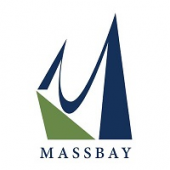
#37: MassBay Community College
The nursing program at MassBay Community College has two pathways for aspiring nurses: an LPN certificate and an ADN degree. The LPN program prepares students to join the workforce as practical nurses, assuming entry-level patient care positions in hospitals and skilled nursing facilities. The curriculum includes both classroom lectures and clinical practice, and it takes just ten months to complete. The ADN is a rigorous two-year program that prepares students for initial RN licensure. Clinical practicums are conducted at a variety of hospitals and healthcare facilities in the MetroWest area. Over the past decade, students from both programs have performed well on the NCLEX licensure examination, with ADN students passing at a 91% rate and LPN students also passing at a 91% rate. Both programs have seen multiple 100% pass rates in recent years.

#38: Bristol-Plymouth Regional Technical School
Bristol-Plymouth Regional Technical School has been in continuous existence for fifty years. The school provides approximately twenty high school technical programs, as well as adult programs in dental assisting, HVAC, and licensed practical nursing. The LPN program has two options: full-time day and part-time evening. Over three terms, students in both tracks will take courses that cover critical areas like growth and development, pharmacology, medical-surgical nursing, and family-centered nursing. Clinical practice, laboratory work, and simulation experiences take place across all terms. Clinical experiences are completed at local sites like Sturdy Memorial Hospital, Catholic Memorial Home, and New Bedford Rehab Hospital. Graduates of BP Tech’s LPN program are extremely well prepared for the NCLEX-PN licensure examination, averaging an extraordinary 99% first-time pass rate over the past decade.
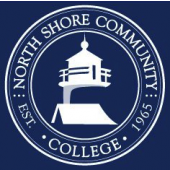
#39: North Shore Community College
North Shore Community College has provided accessible and affordable education to the communities of Northeast Massachusetts for over fifty years. The school conducts a traditional two-year AS degree in registered nursing, a one-year advanced placement LPN-to-RN option, and a ten-month certificate in practical nursing. All three pathways produce excellent student outcomes. For example, NSCC boasted a 95% first-time NCLEX-RN pass rate and an 88% first-time NCLEX-PN pass rate over the past three years. Job placement rates were also excellent during that timeframe, averaging 88% for RN graduates and 84% for LPN graduates. Nursing students can take advantage of the college’s relationships with more than 25 clinical affiliates in the surrounding metropolitan area, including the Danvers Council on Aging, Mass General Brigham Salem Hospital, and Lahey Beverly Hospital. The college also holds baccalaureate nursing transfer agreements with eight institutions including Endicott College, Framingham State University, and Rivier University, providing RN graduates a seamless transition to a BSN degree program.
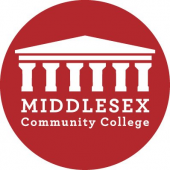
#40: Middlesex Community College
Established in 1970, Middlesex Community College provides more than 80 degree and certificate programs to nearly 11,000 students from all walks of life. MCC is one of the few community colleges to offer an extensive study abroad program with experiences in countries like Greece, Spain, Belize, and China. The college’s Nursing and Allied Health Division conducts a nurse aide certificate program and an associate degree in nursing. The ADN program, which has a 97% job placement rate within six months of graduation, is accredited by the Accreditation Commission for Education in Nursing. Graduates are prepared to sit for the NCLEX-RN licensure examination. Over the past decade, Middlesex Community College’s ADN graduates have averaged a solid 89% first-time NCLEX pass rate.
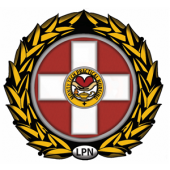
#41: Montachusett Regional Vocational Technical School
Montachusett Regional Vocational Technical School is the second-largest regional school district in Massachusetts, serving more than 1,400 students. Monty Tech’s LPN pathway is a unique program that allows students to skip the prerequisites. Designed for working adults, this ten-month evening program is fully approved by the Massachusetts Board of Registration in Nursing. Upon completion, students are encouraged to enroll in the LPN-to-BSN bridge program at Fitchburg State University. They are also well prepared for the NCLEX-PN licensure examination. Monty Tech’s LPN graduates have averaged an 89% first-time NCLEX pass rate over the past decade. Once they pass the exam, these newly licensed practical nurses are qualified for immediate employment in the field.
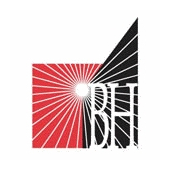
#42: Bunker Hill Community College
Bunker Hill Community College is a fully accredited two-year institution that serves nearly 20,000 students annually through more than 100 associate degree, certificate, and transfer programs. The Division of Health Sciences conducts an ADN program that consists of nursing theory, laboratory work, simulation exercises, and clinical practice at local hospitals and healthcare facilities. Graduates of the program are prepared to sit for the NCLEX-RN licensure examination. Over the past decade, ADN students have averaged an 86% first-time NCLEX pass rate. Bunker Hill Community College also has transfer agreements with major universities such as University of Massachusetts Boston and Framingham State University, allowing ADN graduates to seamlessly pursue baccalaureate education.
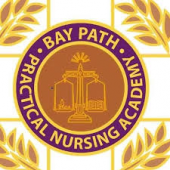
#43: Bay Path Regional Vocational Technical High School
Bay Path Regional Vocational Technical High School offers programs in more than twenty career areas that prepare high school students and adult learners for immediate entry into the workforce. The Bay Path Regional Vocational Practical Nursing Academy offers a 10-month fulltime (Monday through Friday) evening LPN program. The curriculum combines immersive classroom instruction and lab simulation experiences with hands-on clinical practice at local healthcare facilities. Coursework explores pharmacology, nutrition, medical-surgical nursing, family-centered care, and transition into practice. Graduates are well prepared to sit for the NCLEX-PN licensure examination. The Bay Path Regional Vocational Practical Nursing Academy has produced an average of 23 LPN graduates annually over the past decade, with an excellent 90% first-time NCLEX pass rate. These graduates can take advantage of LPN-to-BSN bridge programs offered at partner institutions like Fitchburg State University and Worcester State University.

#44: Quinsigamond Community College
Quinsigamond Community College offers LPN and ADN programs. Both programs feature clinical experiences at a number of sites within the Worcester County area. QCC’s nursing graduates are prepared for direct patient care in a variety of healthcare settings, including clinics, extended care facilities, home and community health agencies, and hospitals. The ADN program also prepares students for further study at four-year colleges and universities. QCC’s nursing students have consistently enjoyed a 100% job placement rate. They have also performed well on their licensure examinations. Over the past decade, LPN students have achieved an 89% first-time pass rate on the NCLEX-PN exam, while ADN students have achieved an 88% first-time pass rate on the NCLEX-RN exam.
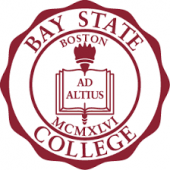
#45: Bay State College
Bay State College is a small institution that serves approximately 800 students enrolled in more than twenty career-focused programs leading to an associate or bachelor’s degree. The school has campuses in Boston and Taunton, as well as online and evening class schedules for adult learners. Bay State College offers two ADN pathways (traditional and LPN advanced placement) and an online RN-to-BSN degree completion program. All nursing programs provide training in health and illness through lab and hospital-based clinicals. Coursework includes pathophysiology, mental health concepts, and nursing care of the childbearing family. Graduates from the ADN program are prepared to sit for the NCLEX-RN licensure examination. The class of 2020 scored an impressive 94% first-time NCLEX pass rate. Bay State nursing graduates are often hired by top local hospitals like Lawrence Memorial, Boston Medical Center, Beth Israel Deaconess, and Lahey Hospitals.
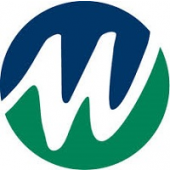
#46: Mount Wachusett Community College
Mount Wachusett Community College offers two options for aspiring nurses: a certificate in practical nursing and an associate degree in professional nursing. The LPN certificate is a competitive 45-credit program that accepts a limited number of students to each cohort. The ADN program is similarly competitive and offers two pathways: a traditional two-year program and a bridge program that allows LPNs with one year of work experience to immediately enter second-semester nursing courses. Over the past decade, MWCC’s ADN students have scored an 84% pass rate on the NCLEX-RN licensure exam. Their LPN counterparts have achieved an impressive 92% pass rate on the NCLEX-PN licensure exam.
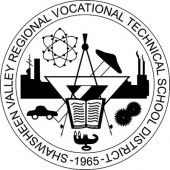
#47: Shawsheen Valley Technical High School
The Shawsheen Valley School of Practical Nursing has more than twenty years of experience educating practical nurses. The school’s curriculum provides the theoretical frameworks, laboratory skills, and clinical experiences for graduates to successfully assume the full scope of LPN responsibilities in Massachusetts. Students attend the program in a convenient and flexible evening and weekend format, following the high school’s forty-week calendar. Approximately 30-40 LPN candidates complete the program annually. These students have an impressive track record on the NCLEX-PN licensure examination, including an 88% first-time pass rate over the past decade.
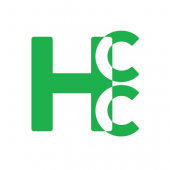
#48: Holyoke Community College
Established in 1946, Holyoke Community College was Massachusetts’ first two-year college. The school offers close to 100 degree and certificate programs, including flexible options for working adults, across its Center for Health Education, Kittredge Center for Business and Workforce Education, and the new HCC MGM Culinary Arts Institute. The Center for Health Education is home to HCC’s nursing programs. Instruction and hands-on training take place in multi-equipped classrooms, high-fidelity simulation labs, and regional healthcare centers. Aspiring nurses can pursue an LPN certificate or one of two associate degree pathways (traditional, LPN bridge). Across nursing programs, HCC graduates are well prepared for their licensure exams. LPN students have averaged a 91% first-time NCLEX-PN pass rate over the past decade, while ADN students have averaged an 88% first-time NCLEX-RN pass rate over that timeframe.

#49: McCann Technical School
McCann Tech has a unique co-op education program that allows students to work and earn a paycheck while studying in their technical major. In the classroom, learning is hands-on and project-based. In addition to technical programs for high school students, McCann Tech has postsecondary programs in cosmetology, dental assisting, nursing, and surgical technology. The nursing program is an LPN pathway that teaches students how to provide basic patient care, check and monitor vital signs, administer medications, monitor medical equipment, and perform lab tests. The ten-month program includes clinical experiences at local hospitals and healthcare centers. Upon completion, graduates must pass the NCLEX-PN licensure examination before commencing work. Over the past decade, McCann Tech’s LPN students have averaged an 88% first-time NCLEX pass rate.
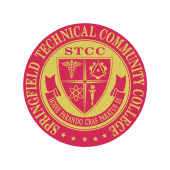
#50: Springfield Technical Community College
Springfield Technical Community College offers an ADN program with a rigorous curriculum of classroom lecture, nursing skills laboratory, and patient simulation in the school’s nationally recognized SIMS Medical Center. Clinical rotations take place each semester in a variety of hospitals and healthcare agencies throughout Springfield and the Pioneer Valley region of Western Massachusetts. The ADN program admits 90-100 students each fall. It is designed as a two-year day program, with clinical experiences that may take place during evening and weekend hours. Over the past decade, STCC graduates have maintained a solid 86% pass rate on the NCLEX-RN licensure examination.
